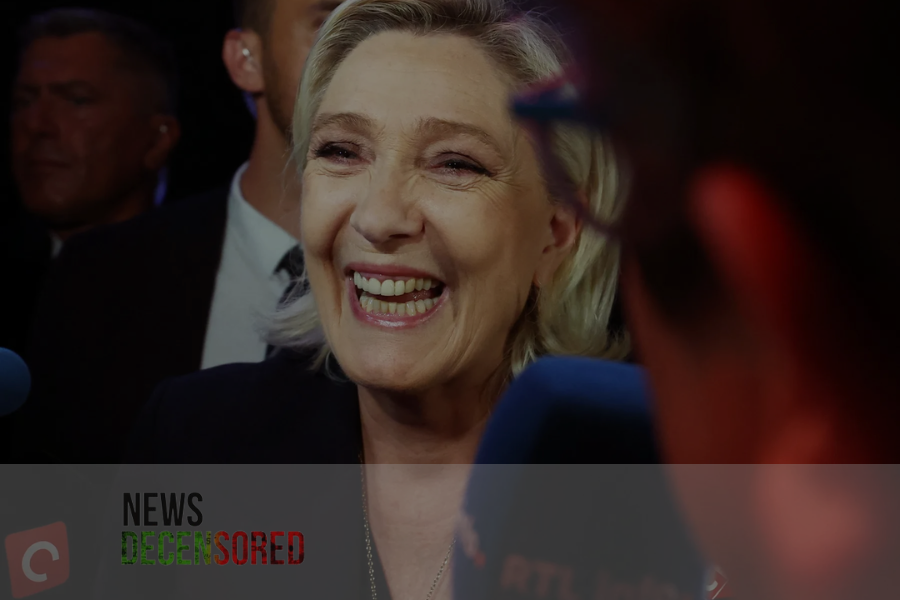The far-right, anti-Muslim National Rally (RN) has emerged as the frontrunner in the first round of the French elections, marking a significant shift in the country’s political landscape. Securing 33.14% of the votes, the RN has positioned itself closer to potentially forming a government and claiming the prime minister’s post. This outcome almost doubles the party’s performance from the 2022 elections.
Following closely behind the RN is the left-wing New Popular Front alliance, which garnered 27.9% of the votes. President Emmanuel Macron’s centrist coalition trailed in third place with 20.7%.
As a result of these outcomes, hundreds of French people appeared on the streets of Paris on Sunday evening to look into. The RN has for many years been accused of racism and discrimination against Arab and black people in particular and Muslims in general. The only major strategy that the party’s campaign has essentially centered on is xenophobia and advocacy of “National preference. ”
This electoral triumph follows the RN’s win in the European election, which made Macron dismiss the National Assembly. The RN leader, Marine Le Pen, said to her supporters, ‘Nothing is won yet, ‘ and told her supporters to mobilize to contribute in the second round on July 7.
Before the electoral processes started, some French people, especially Muslims and immigrants, expressed their fears in case RN would come to power. Football idol Kylian Mbappe’, in turn, called for youth votes against ‘extremists,’ who, he said, ‘are at the doorstep of power,’ prior to France’s first match of the Euro 2024. While Mbappé did not mention any party in particular, his remark was triggered by a question about teammate Marcus Thuram, who had lately stated his wish to stop RN from coming to power.
The election results have magnified the concerns as to increasing racism in France. Nongovernmental organizations working on human rights have observed that racism is gradually gaining acceptance in the country. The most recent poll by the National Consultative Commission on Human Rights (CNCDH), a French-based organization affiliated with the United Nations, indicated that the tolerance level has gone down for the past two years. We can describe the recent decline as quite significant and rather uncommon if we compare it with the index’s situation in the 1990s.
Picking up from the survey, 56% of the French respondents affirmed there were many immigrants in France, and 51% responded that they found themselves no longer at home in France. To CNCDH’s President, Jean-Marie Burguburu, this was directly linked to the rejection of a multicultural France. Employment problems especially worsen in societies, and immigrants are regarded as a source of those societies’ challenges; the CNCDH report recognizes Roma and Muslims as receiving the highest discrimination. In this study, the level of tolerance that respondents had towards Islam was very poor, as only 32% of them had positive attitudes toward Islam.
Regarding that, the CNCDH report also focuses on the contribution of the National Rally and some media in promoting these attitudes. The RN has become more prominent at the polls and in the media, and many personalities are trying to shape public opinion in the desired tone regarding immigration and diversity.
France is preparing for the second round of renovations, and important questions about the country’s future and the principles to defend are being raised. Of particular consequence, the increasing propensity for voters to deliver their verdict for the RN presents a turning point in contemporary French politics that goes beyond electoral events.















